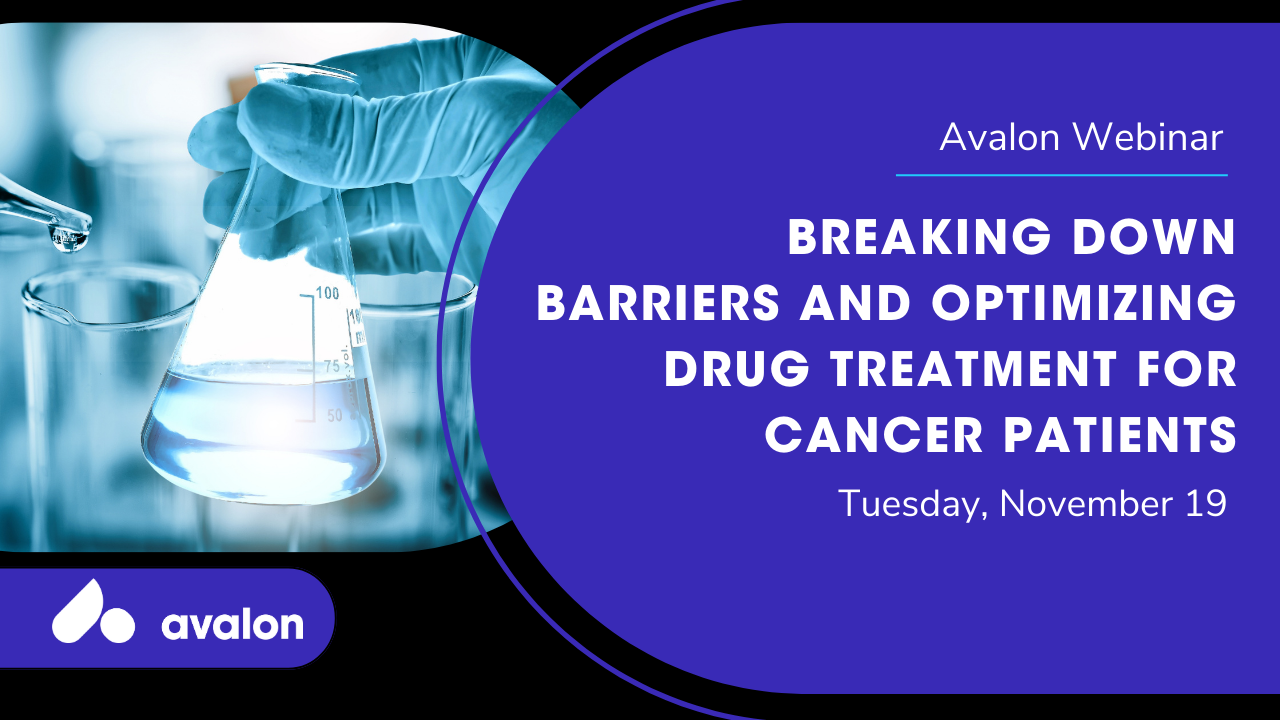Breaking Down Barriers and Optimizing Drug Treatment for Cancer Patients: Key Insights
In this era of healthcare, precision medicine is reshaping cancer treatment. Avalon’s webinar on November 19th, 2024, was led by experts in genetic oncology, pharmacology, new test evaluation, lab analytics, and health plan management. The webinar highlighted how timely and accurate cancer treatment provides health and financial benefits.
Setting the Context: The Precision Medicine Revolution
Matt Ingram, VP of Product at Avalon, emphasized the potential of next-generation genomic sequencing testing to improve NSCLC (Non-Small Cell Lung Cancer) cancer patients’ outcomes and quality of life. Early and precise genetic profiling can reduce treatment delays and improve adherence to evidence-based therapies. However, barriers such as pre-authorization (PA) requirements and limited provider awareness hinder equitable access.
Expert Panel Insights: The Challenges of Genetic Testing
Panelists outlined critical barriers to widespread adoption of genetic testing and precision treatments:
- Underutilization of Genetic Testing: Studies show that 44% of NSCLC patients do not receive biomarker testing partially due to provider uncertainty about test appropriateness.
- Mismatch in Therapy Selection: Data reveal significant instances of patients receiving targeted therapies without corresponding genetic tests or being placed on treatments that don’t follow guidelines.
- Systemic Barriers: Turnaround times for tissue versus liquid biopsy, delays in PA, and differences in guideline adoption affect access to genetic testing.
Solutions to Address Testing and Treatment Gaps
Mike Dovidio, Product Manager at Avalon, presented Avalon’s approach to addressing these challenges through Lab Values Management (LVM). The platform streamlines processes by automating PAs for genetic testing and guideline-concordant drug therapies, reducing turnaround times from 40–60 days to as little as 15 days. This approach shortens the timeline for treatment and decreases administrative burdens for providers and payers.
Revolutionizing Testing with Liquid Biopsy
Julie Wiedower, Senior Director of Medical Affairs at Guardant Health, detailed the advantages of liquid biopsy technology. Guardant 360, an FDA-approved blood-based genomic profiling test, is redefining cancer diagnosis and treatment:
- Efficiency: Liquid biopsy detects cancer DNA in the bloodstream, providing actionable results without invasive tissue biopsies.
- Accessibility: Easier to administer, faster turnaround times, and fewer tissue-sample limitations enhance patient compliance.
- Guideline Alignment: Studies demonstrate 95% concordance with tissue-based testing, validating its efficacy. Guardant 360 also supports equitable care by reducing systemic barriers.
Wiedower highlighted that 50% of NSCLC patients do not get all guideline-recommended genes tested, and only 10% receive targeted treatment. Integrating these tools across care networks can significantly improve outcomes and align with updated guidelines.
Improving Equity in Precision Medicine
Addressing disparities in cancer care requires a multifaceted approach:
- Education: Empowering providers and patients to understand the importance of genetic testing.
- Streamlined Processes: Simplifying access through automated PAs and guaranteed insurance coverage.
- Data Transparency: Leveraging clinical studies to demonstrate the efficacy of tools like Guardant 360 and liquid biopsy testing in delivering actionable results.
Dr. Shawn Stinson, SVP of Innovation at Blue Cross Blue Shield of South Carolina, reiterated the need to reduce administrative hurdles. Their Quality Improvement Activity with Avalon plans to eliminate PAs for genetic testing and follow the NCCN guidelines for therapies, fostering faster and more equitable access to precision treatments.
Collaborative Efforts to Scale Innovation
Michael Lemieux, Medical Policy and Scientific Affairs Manager at Avalon, underscored the importance of collaboration with payers, labs, and providers to drive advancements. Avalon’s Clinical Advisory Board reviews emerging technologies like multi-gene liquid biopsy panels, ensuring evidence-based coverage decisions. These efforts are instrumental in building trust and are a crucial part of the benefits of working with Avalon.
Key Outcomes of Innovation
- Enhanced Patient Care: Faster, more precise diagnostics improve survival rates, particularly in NSCLC, where genomic information correlates with fourfold increases in overall survival.
- Cost Savings: Automated processes reduce administrative costs for providers and health plans while improving outcomes mitigates downstream expenses.
- Scalability: Starting with NSCLC, the program aims to expand to other cancers, broadening the impact of precision medicine.
While genetic testing is becoming more accepted, adoption is slow due to the time required for guideline updates and provider trust in new modalities. Panelists emphasized the need for continued education, robust clinical evidence, and pilot programs to demonstrate real-world benefits.
Conclusion: Partnering for Progress
There is an urgent need to address systemic barriers and underutilization of genetic testing in oncology care. Innovations like Avalon’s automated solutions and Guardant Health’s liquid biopsy technology represent significant steps forward. By fostering collaboration among health professionals, payers, and laboratories, the healthcare community can drive equitable access to precision medicine, ultimately improving outcomes for all cancer patients.

